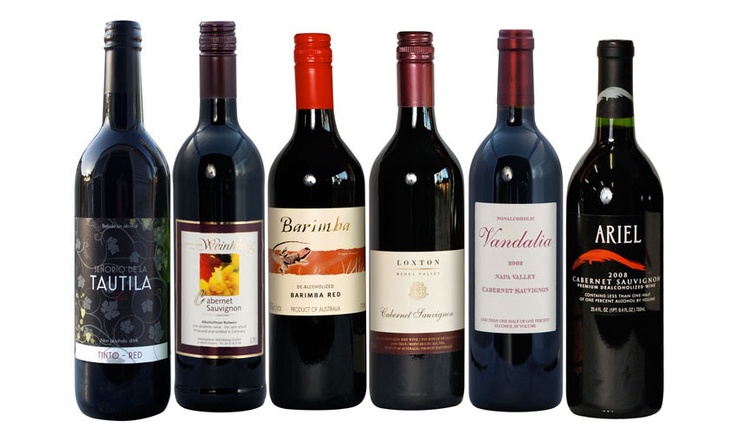Non-alcoholic wines have become a popular alternative for those who enjoy the taste of wine but want to avoid alcohol. Whether for health reasons, personal preferences, or lifestyle choices, non-alcoholic wines offer a sophisticated and enjoyable drinking experience without the intoxicating effects. In this comprehensive guide, we will explore everything you need to know about non-alcoholic wines, from their production methods to their benefits and best brands available today.
What Are Non-Alcoholic Wines?
Non-alcoholic wines are beverages made from traditional wine grapes that have undergone a process to remove or reduce alcohol content. Unlike grape juice, these wines are fermented just like regular wines but go through an additional de-alcoholization process to maintain the complex flavors and aromas of traditional wines.
How Are Non-Alcoholic Wines Made?
Non-alcoholic wines are produced using several techniques that remove alcohol while preserving the wine’s taste profile:
- Vacuum Distillation: A process where alcohol is evaporated at a lower temperature to retain the wine’s flavors and aromas.
- Reverse Osmosis: This technique filters out alcohol molecules while preserving other components that contribute to the wine’s character.
- Spinning Cone Technology: A more advanced method that separates alcohol from wine using a series of spinning cones, keeping the original flavor intact.
Why Are Non-Alcoholic Wines Gaining Popularity?
Several factors have contributed to the rise of non-alcoholic wines:
- Health Benefits: Many people are reducing alcohol consumption for health reasons, such as improving liver function, reducing calorie intake, and preventing hangovers.
- Sober-Curious Movement: More individuals are exploring sobriety or moderation, driven by initiatives like Dry January and Sober October.
- Pregnancy & Medical Restrictions: Non-alcoholic wines provide an option for pregnant women, individuals on medication, or those with medical conditions that prevent alcohol consumption.
- Inclusivity: These wines allow everyone to participate in social gatherings without feeling left out.
Types of Non-Alcoholic Wines
Non-alcoholic wines come in a variety of styles, similar to their alcoholic counterparts:
1. Non-Alcoholic Red Wines
Rich in flavor and often full-bodied, these wines mimic traditional red wines and pair well with hearty meals. Some popular varieties include:
- Cabernet Sauvignon
- Merlot
- Pinot Noir
2. Non-Alcoholic White Wines
Crisp, refreshing, and light, non-alcoholic white wines are perfect for warm days or seafood dishes. Popular options include:
- Chardonnay
- Sauvignon Blanc
- Riesling
3. Non-Alcoholic Rosé Wines
With delicate flavors and a hint of sweetness, non-alcoholic rosé wines offer a balanced option between red and white wines.
4. Non-Alcoholic Sparkling Wines
Perfect for celebrations, non-alcoholic sparkling wines provide the bubbly experience without alcohol. Some well-known types include:
- Alcohol-Free Champagne
- Brut-Style Sparkling Wine
- Prosecco Alternatives
Benefits of Drinking Non-Alcoholic Wine
Opting for non-alcoholic wine offers several benefits:
- Lower Calories: These wines typically contain fewer calories than alcoholic versions, making them a great choice for weight-conscious individuals.
- Better Hydration: Unlike alcoholic wines, non-alcoholic wines do not dehydrate the body.
- No Hangovers: Since they contain little to no alcohol, they eliminate the risk of hangovers.
- Heart Health: Some studies suggest that non-alcoholic red wines may offer cardiovascular benefits due to their polyphenol content.
Best Non-Alcoholic Wine Brands to Try
Many reputable brands produce high-quality non-alcoholic wines. Some of the best include:
- Ariel Vineyards: Known for their full-bodied non-alcoholic red and white wines.
- Fre Wines: Offers a variety of alcohol-free options, including Chardonnay and Merlot.
- Leitz Eins-Zwei-Zero: A German brand specializing in premium alcohol-free wines.
- Pierre Chavin: Produces elegant French non-alcoholic wines with authentic flavors.
- TÖST: A sparkling alternative made with white tea, ginger, and elderberry.
Where to Buy Non-Alcoholic Wines
You can find non-alcoholic wines at various locations, including:
- Specialty Non-Alcoholic Shops: Many stores now cater specifically to alcohol-free beverages.
- Supermarkets & Liquor Stores: Many major retailers carry non-alcoholic wine sections.
- Online Retailers: Websites like Amazon, Better Rhodes, and Dry Drinker offer a wide selection.
How to Serve and Pair Non-Alcoholic Wines
To enhance your experience, serve non-alcoholic wines properly:
- Serving Temperature:
- Red wines: Slightly chilled (55-65°F)
- White wines: Well-chilled (45-50°F)
- Sparkling wines: Ice-cold (40-45°F)
- Pairing Suggestions:
- Red wines pair well with grilled meats, pasta, and aged cheeses.
- White wines complement seafood, salads, and light poultry dishes.
- Rosé wines go well with Mediterranean cuisine, summer salads, and fresh fruits.
- Sparkling wines are excellent for celebrations and pair well with appetizers and desserts.
The Future of Non-Alcoholic Wines
With the growing demand for healthier lifestyle choices and alcohol-free alternatives, the non-alcoholic wine industry is expected to expand. Innovations in production methods continue to improve the taste and quality of these beverages, making them a mainstream choice for more consumers.
Conclusion: A Sophisticated Alternative to Traditional Wine
Non-alcoholic wines are more than just a trend—they offer a flavorful, inclusive, and health-conscious option for wine lovers. Whether you’re reducing alcohol intake, embracing sobriety, or simply curious, there’s never been a better time to explore the world of non-alcoholic wines. Cheers to a refined drinking experience without the alcohol!









